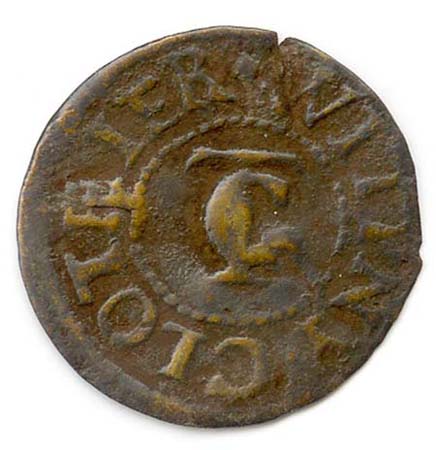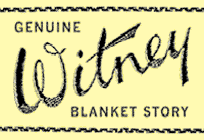Collier
 A copper farthing token of Thomas Collier, 1650s-1660s. The
reverse siude with the monogram 'TC'; there is a fleece in the
centre of the other side.
Dates of operation: 1584(c)
Origins and history
Collier is one of the oldest names in the history of Witney
blanket making. In the 16th century they were both wool and
cloth merchants [1]. In an inventory of household goods made at
Kenilworth Castle in Warwickshire for the Earl of Leicester in
April 1584, an entry reads 'XXX blankets bought of Coliar of
Whytney' [2]. A Robert Collier was also one of the first twelve
assistants to the Company of Witney Blanket Weavers, along with
Thomas Early.
A Government report of 1838 recorded that Horatio Collier then
employed at least twenty weavers, Samuel Collier had ten, Thomas
Collier had six and Robert Collier had four. Together, these men
were the most important weavers in Witney at this time next to
the Earlys [3]. They operated not as a single company as we
would know it today, but rather had separate entures that would
help each other out as required.
The Colliers continued to make blankets for most of the 19th
century, but about 1879 William and Harry Smith (sons of William
Smith, founder of W. Smith and Co.) took over James and Albert
Collier's business at Crawley Mill and Corn Street [4]. This
event seems to have marked the end of the Collier family's
involvement in the blanket industry.
Products and operations
The Colliers are known mainly for blanket making.
Premises
Horatio and Robert Collier acquired a weaving shop on the north
side of Corn Street in 1830. By the 1870s the Corn Street
factory was owned by James and Albert Collier and housed
thirteen spring looms and three ordinary looms; they also owned
Crawley Mill where most of the preparatory and finishing
processes were carried out [5]. When the business was sold on to
Smith's, Corn Street closed down as a blanket factory but
Crawley Mill was retained for finishing processes.
The Collier family seems to have used only handlooms, and never
mechanised the weaving process.
|

